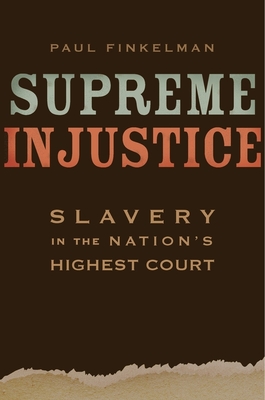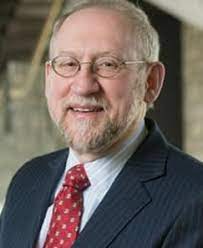

 Harvard University Press
Harvard University Press
Supreme Injustice: Slavery in the Nation's Highest Court


Key Metrics
- Paul Finkelman
- Harvard University Press
- Hardcover
- 9780674051218
- 8.6 X 5.6 X 1 inches
- 0.9 pounds
- Law > Legal History
- English
 Secure Transaction
Secure TransactionBook Description
The three most important Supreme Court Justices before the Civil War--Chief Justices John Marshall and Roger B. Taney and Associate Justice Joseph Story--upheld the institution of slavery in ruling after ruling. These opinions cast a shadow over the Court and the legacies of these men, but historians have rarely delved deeply into the personal and political ideas and motivations they held. In Supreme Injustice, the distinguished legal historian Paul Finkelman establishes an authoritative account of each justice's proslavery position, the reasoning behind his opposition to black freedom, and the incentives created by circumstances in his private life.
Finkelman uses census data and other sources to reveal that Justice Marshall aggressively bought and sold slaves throughout his lifetime--a fact that biographers have ignored. Justice Story never owned slaves and condemned slavery while riding circuit, and yet on the high court he remained silent on slave trade cases and ruled against blacks who sued for freedom. Although Justice Taney freed many of his own slaves, he zealously and consistently opposed black freedom, arguing in Dred Scott that free blacks had no Constitutional rights and that slave owners could move slaves into the Western territories. Finkelman situates this infamous holding within a solid record of support for slavery and hostility to free blacks.
Supreme Injustice boldly documents the entanglements that alienated three major justices from America's founding ideals and embedded racism ever deeper in American civic life.
Author Bio
A specialist in American legal history, constitutional law, and race and the law, Professor Paul Finkelman is the author of more than 150 scholarly articles and more than 30 books. His op-eds and shorter pieces have appeared in the New York Times, the Washington Post, USA Today, and on the Huffington Post. He was recently named the ninth most cited legal historian according to "Brian Leieter's Law School Rankings."
He is an expert in constitutional history and constitutional law, freedom of religion, the law of slavery, civil liberties and the American Civil War, and legal issues surrounding baseball. He has written extensively on Thomas Jefferson and on Abraham Lincoln. Professor Finkelman was the chief expert witness in the Alabama Ten Commandments monument case and his scholarship on religious monuments in public spaces was cited by the U.S. Supreme Court in Van Orden v. Perry (2005). His scholarship on the Second Amendment has also been cited by the Supreme Court. In 2002 he was a key expert witness in the suit over who owned Barry Bonds' 73rd home run ball.
C-SPAN was on the Albany Law School campus in fall 2010 to tape Professor Paul Finkelman's two-hour class on the Dred Scott case. The program aired nationally and is now part of C-Span’s series on American History. He has also appeared on other C-Span programs, on PBS, and the History Channel.
Education
- B.A., Syracuse University
M.A., Ph.D., University of Chicago
Fellow in Law and Humanities, Harvard Law School
Source: Albany Law School
Community reviews
Write a ReviewNo Community reviews



